Civil society´s impact on electoral processes and 2024 European Parliament elections debate
26. April 2024 / 13:00 Nordic Hotel Forum, conference room Sirius (Viru väljak 3).
The photo gallery of the XXVII Open Society Forum is available HERE.
Watch the event in English and Estonian.
In the current global landscape, we can observe a continuing and concerning trend of democratic decline and the surge of populism. Societies that were once open have become more closed, institutions tasked with protecting our rights are under pressure. All of this has been facilitated by the widespread dissemination of disinformation, exacerbating conflicts among different segments of society.
However, despite the challenges facing democracy, there are also some positive developments. The 2023 parliamentary elections in Poland showed that with the joint efforts of civil society and political mobilization, it is possible to reverse authoritarian trends. While each country has its unique characteristics, they also share common problems that may have shared solutions. To address these issues effectively, cooperation among civil society actors is essential. As Europe gears up for the 2024 European Parliament elections and other significant national and local electoral events, the strategies employed by civil societies become pivotal. These strategies aim to actively engage citizens in democratic processes, fostering their involvement in co creating a democratic public space
At the first part of the forum, titled "Civil society´s impact on electoral processes - how to win elections"? we discussed with distinguished experts from Estonia, Poland and Slovakia, how to actively engage citizens in democratic processes and promote their participation in shaping democratic public sphere.
In the second part of the forum, the 2024 European Parliament elections candidates debate took place, titled “Estonia´s 20 years in the European Union: is this the Europe we wanted?”. The European Parliament elections will take place on June 6-9. This time they hold special significance for Estonia, as exactly 20 years ago, Estonia, along with several other European countries, became a full-fledged member of the European Union. However, the post-accession optimism has somewhat diminished: democracy has been declining both in Europe and worldwide, civic space is narrowing, the war in Ukraine shows no signs of ending, there is a growing sense of polarization, and inflation and climate change affect everyone.
Yet, as one of the founders of the European community, Jean Monnet, observed, Europe is built in crises and it will be composed of the solutions to those crises. To emerge from crises, it is crucial to have dialogue and cooperation between decision-makers and citizens. How can we more effectively involve people in decision-making processes and encourage them to engage in European issues? How can we collectively manage crises and strengthen democracy? What have we learned as EU members over the past 20 years? These are some of the questions regarding democracy and the future of the EU that we addressed in the European Parliament candidate debate.
The XXVII Open Society Forum is funded by the Active Citizens Fund and the European Union in the framework of the project “CoviDemocracy in the Baltics”.
Agenda
12:00-13:00 Registration and coffee
13:00-13:30 Opening of the XXVII Open Society Forum:
Welcoming address by Mall Hellam, Executive Director of the Open Estonia Foundation;
Keynote speech via video-message by European Commission Vice-president for Democracy and Demography Dubravka Šuica;
Keynote speech by H.E. Marius Dirdal, Ambassador of Norway to Estonia.
13:30-15:00 Panel discussion “Civil society´s impact on electoral processes - how to win elections?” (in English). Speakers: Tarmo Jüristo, columnist and founder of SALK, Estonia; Ewa Kulik-Bielińska, Director of the Stefan Batory Foundation, Poland; Fedor Blaščák, Director of the Open Society Foundation Slovakia. The discussion will be moderated by Bart Cosijn, moderator, trainer, and founder of the Estonian Dialogue Academy.
15:00-15:30 Coffee break
15:30-17:00 Debate with the Estonian candidates of the 2024 European Parliament elections “Estonia´s 20 years in European Union: is this the Europe we wanted?” (in Estonian). Participants: Marina Kaljurand (Social Democratic Party), Erki Savisaar (Estonian Centre Party), Yoko Alender (Estonian Reform Party), Arvo Aller (Estonian Conservative People´s Party), Hendrik Johannes Terras (Estonia 200) and Jüri Ratas (Isamaa). The debate will be moderated by Margo Loor, trainer and moderator at Speaksmart.
Ask a question from EP candidate here: https://app.sli.do/event/vmynRX1aZgqghyfcqYR6jj/live/questions
17:00 Closing of the XXVII Open Society Forum
17:00-18:00 Snacks and networking
*the OEF reserves the right to make changes in the program.
Technical information
The working language of the forum is English, the EP election debate will be held in Estonian.
Simultaneous translation into English and Estonian will be provided.
Registration will start in the beginning of April.
The event will be live streamed at www.oef.org.ee
If you fall ill, plans change or have any questions, please contact the organizers.
Additional information and media inquiries: Jete Aljasmäe, jete@oef.org.ee
The XXVII Open Society Forum is funded by the Active Citizens Fund and the European Union in the framework of the project “CoviDemocracy in the Baltics”.
Speakers
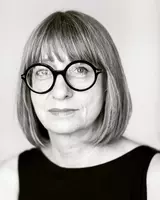
Ewa Kulik-Bielińska
Director of the Stefan Batory Foundation
Ewa Kulik-Bielińska is a distinguished Polish civic activist, translator, and the director of the Stefan Batory Foundation. She played a pivotal role as one of the co-founders of the legendary Polish movement Solidarity in 1980. This movement epitomized an extraordinary mobilization of citizens from diverse backgrounds, united in protest against the communist regime. In 1989, Solidarity's efforts were instrumental in the successful pro-democratic initiatives that ultimately led to the end of communist rule in Poland.
Throughout the Third Polish Republic, Kulik-Bielińska has been actively engaged in non-governmental and industry organizations. These include the Association of Polish Translators (since 1992), the Polish PEN Club (since 1995, serving on the board from 1997 to 1999), and the Association of Polish Writers (since 1996). From 2000 onwards, she held the position of director of information and development at the Stefan Batory Foundation, eventually assuming the role of director of the foundation in 2010. During these years, she has been a leading advocate for creating a conducive legal environment to foster philanthropy and civic activism in Poland and Europe.
Ewa was the initiator and founder of the Polish Donors Forum, an association of Polish private grantmaking institutions. From 2004 to 2008, she served as a civil society organization (CSO) sector representative at the first Council for Public Benefit Activity, an advisory body to the Minister of Social Policy in Poland. From 2010 to 2015, she was a member of the Working Group on Enabling Fiscal and Legal Environment for Civil Society at the Chancellery of the President of Poland. Furthermore, from 2014 to 2017, she served as the Chair of the European Foundation Center, an association comprising the leading European and international philanthropic institutions dedicated to supporting civil society, social justice, culture, and research in Europe and globally.
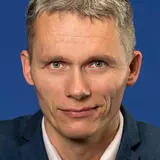
Tarmo Jüristo
Founder and head of SALK
Tarmo Jüristo is a well-known civic activist, columnist, founder and head of SALK (Liberal Citizen Foundation). An active member of Estonian civil society, Tarmo Jüristo was one of the original members to sign Harta12 (a civil initiative focusing on problem areas in state governance) and publicly stood for the ratification of the Registered Partnership Act in autumn of 2014. As a playwright at Von Krahl Theatre and NO99, Tarmo has led two plays that are considered flagships of modern Estonian theatre. He graduated from the University of Tartu with a degree in Finance and Credit and worked in the financial sector, in fields of commercial and investment banking and risk capital management, for 15 years. Currently, he is finishing his PhD in Cultural Studies at the University of Tallinn.
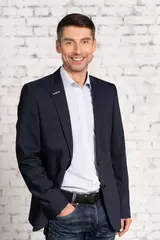
Margo Loor
Moderator and trainer at Speaksmart
In order to become a successful moderator, Margo has developed and refined his moderation skills for over 20 years. Since 1998, he has been conducting argumentative persuasion, debating and decision-making trainings for adults and leading discussions at seminars and conferences. Margo has advised the launch and development of debate programs in several foreign countries (Myanmar, Laos, Cambodia, Nepal) and has worked as an educator at the international level (lectures at Chiang Mai University, Thailand, Istanbul).In addition to his work as a moderator and trainer, Margo is a co-founder and a technology evangelist at CitizenOS, an Estonian NGO, which develops e-democracy.
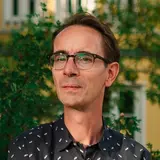
Bart Cosijn
Moderator and moderator trainer
Bart Cosijn is a professional moderator, moderator trainer, and the founder of the Estonian Dialogue Academy. He is an advocate for stronger democracies through better public conversation and civic participation. With over fifteen years of experience, he specializes in facilitating public discussions, dialogues, participatory processes, and political debates. Bart is committed to training moderators and facilitators, providing coaching services to individuals at public institutions, universities, and public conversation centers. Read more about Bart here: https://www.bartcosijn.com/
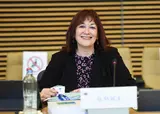
Dubravka Šuica
European Commission Vice-President for Democracy and Demography
Since December 2019, Dubravka Šuica is Vice-President of the European Commission in charge of Democracy and Demography. Mrs Šuica a Croatian politician from the city of Dubrovnik, where she served for two terms as its first female mayor and was awarded the 2006 World Mayor Award. Dubravka Šuica entered politics in the 1990s as a Member of the Croatian Democratic Union and served as a Member of the Croatian Parliament and Vice-Chair of the EU Integration Committee. Between 2004 and 2009 she was a Board Member of the Union of the Association of Towns and Municipalities of the Republic of Croatia. During ten years she was the Vice-President of Congress of Local and Regional Authorities of the Council of Europe. From 2013 to 2019 Dubravka Šuica served as a Member of the European Parliament and Vice-Chair of Foreign Affairs Committee. In June 2019, Šuica was elected as first Vice Chair of EPP Group in the European Parliament. Since 2012, she is the Vice-President of EPP Women.
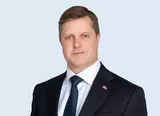
Marius Dirdal
Ambassador of Norway to Estonia
H.E. Marius Dirdal has been serving as the Ambassador of Norway to Estonia since 2022. He has been a member of the Norwegian Foreign Service since 1995, with a focus on Russian affairs, Arctic affairs, energy, and regional European and Nordic cooperation. He has held previous postings in Moscow, Copenhagen, and Washington, D.C. Dirdal holds degrees in Political Science and Russian language from the University of Oslo and the University of Bergen.
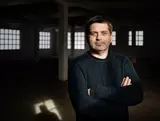
Fedor Blaščák
Director of the Open Society Foundation Slovakia
Fedor Blaščák is a Slovakian philosopher, publicist, and civic activist, currently serving as the director of the Open Society Foundation Slovakia. He is renowned for his contributions to contemporary history and the politics of memory, education, and culture. With a wealth of experience spanning over twenty years in the non-governmental sector and non-profit organizations, he played a pivotal role in founding the Association of Corporate Foundations and Endowment Funds, where he held leadership until 2018. Furthermore, he served as a negotiator representing the third sector, advocating for the implementation of the tax allocation mechanism. Blaščák is also credited as the co-author of the docuseries "ŠtB: Top Secret," which delves into the history of the communist secret police.
